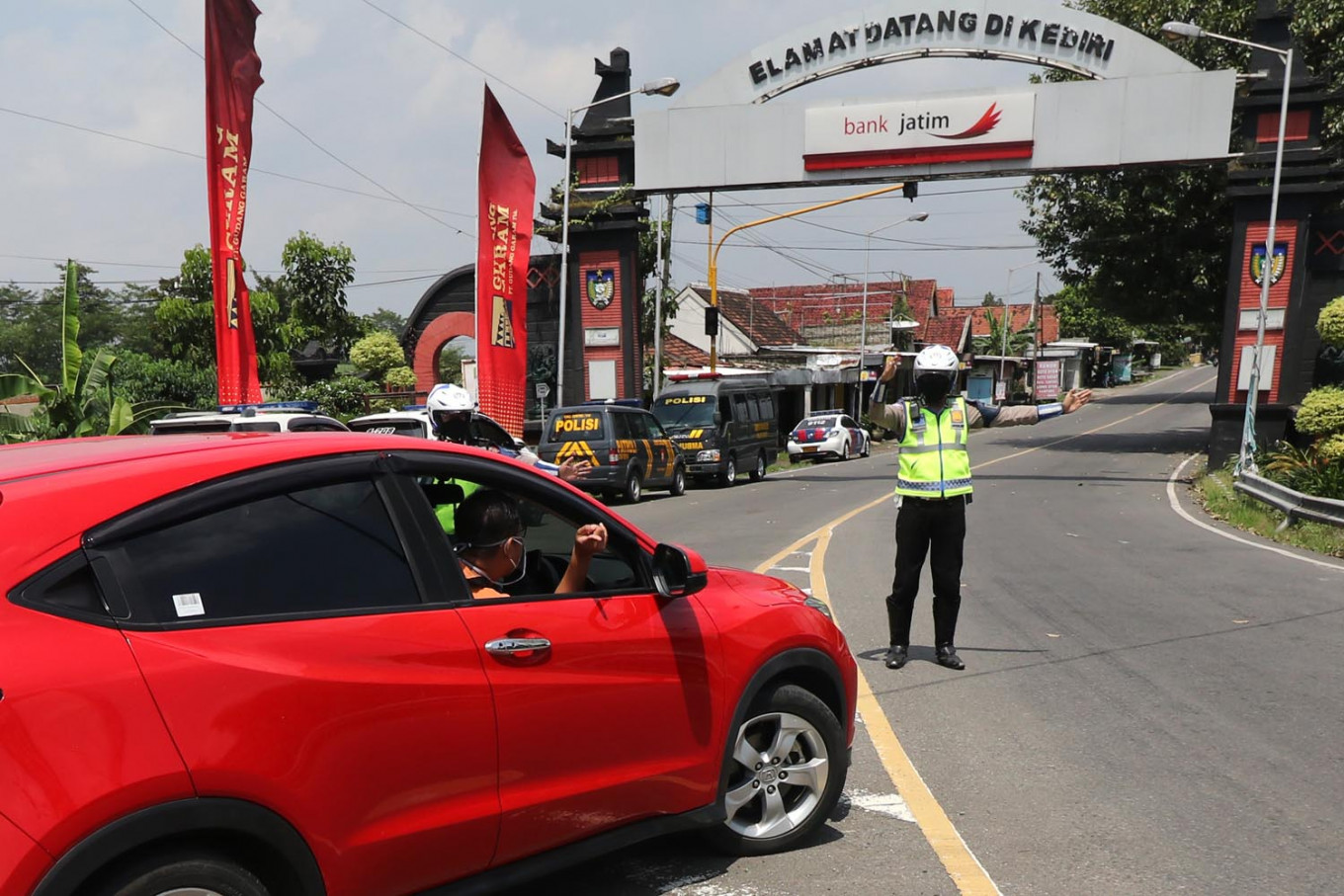Popular Reads
Top Results
Can't find what you're looking for?
View all search resultsPopular Reads
Top Results
Can't find what you're looking for?
View all search resultsGovt warns civil servants they face sanctions if they participate in Idul Fitri 'mudik'
The Administrative and Bureaucratic Reform Ministry issued a circular on April 9 stipulating that civil servants who disobeyed the ban faced mild to heavy disciplinary sanctions.
Change text size
Gift Premium Articles
to Anyone
T
he central government has warned civil servants that they face sanctions should they participate in this year's Idul Fitri mudik (exodus), now that the state has officially banned the annual tradition to curb the spread of COVID-19.
The ministry issued a circular on April 9 stipulating that civil servants who disobeyed the ban faced mild to heavy disciplinary sanctions.
"The type of sanction depends on the impact the person’s actions have on their work, their institution and society," the ministry's integrity and merit evaluation undersecretary's assistant, Bambang Sumarsono, told the press on Thursday.
Mild sanctions include verbal warnings and/or reprimand letters, while the second most severe sanctions include postponement of salary increases and demotion, Bambang said.
Under the most severe sanctions, civil servants face a three year demotion or termination of employment.
Read also: Explainer: What’s allowed and what’s not in Indonesia's ‘mudik’ ban
Records of the sanctions will be uploaded to the National Civil Service Agency’s (BKN) online employment system. “All sanctions will be recorded, which later will affect their careers,” he said.
Aside from being prohibited from taking part in mudik, civil servants are also prohibited from taking leave during the pandemic, unless it is for urgent matters, including maternity leave, sick leave or family reasons such as the death of a close relative, Bambang added.
After President Joko "Jokowi" Widodo announced the mudik ban last week, the Transportation Ministry announced that travel restrictions would be effective from April 24 until May 31 that prevent private vehicles, bus, trains, ships and chartered and commercial flights from entering or leaving COVID-19-impacted areas.
As of Wednesday afternoon, 9,771 confirmed cases had been recorded, with 784 fatalities, according to the government's official tally.
The Idul Fitri mudik ban, coupled with the large-scale social restrictions (PSBB) currently in place in a number of regions, will likely help to break the chain of transmission and possibly bring the outbreak to an end by June, according to the Indonesian Doctors Association (IDI).










